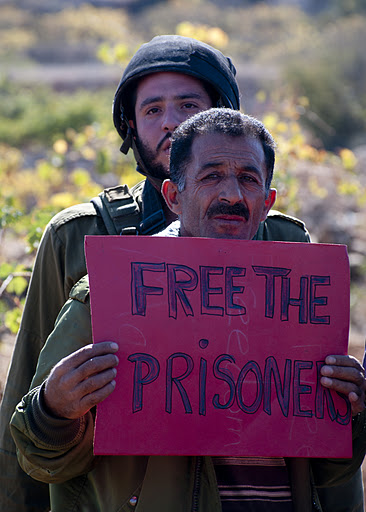Tag: Karmei Tzur settlement
-
Beit Ummar: Settlers throw stones from behind military tear gas
by Anders and Aurelie 30 October 2011 | International Solidarity Movement, 2011 What started as a peaceful demonstration soon erupted into violence when soldiers and settlers from Karmei Tzur settlement attacked a demonstration in Beit Ummar today. The demonstration of around 30 Palestinians and internationals started from the outskirts of the village and continued through a…
-
Broken wrists and arrests by Israeli military as farmers cultivate Beit Ummar
10 September 2011 | International Solidarity Movement, West Bank Supporting Palestinian farmers in Beit Ummar, international activists joined the weekly Saturday activities–clearing the land for cultivation despite the harrassment of Israeli military and illegal settlers, which resulted in the injury of a Palestinian man and the arrest of a British national, Jude Wells. At 9…
-
Palestinian man still under arrest after demonstration in Beit Ommar on Saturday
29 June 2011 | International Solidarity Movement Two international activists are released following their arrest and court hearing in Jerusalem, while a Palestinian man is still under custody following a peaceful demonstration in Beit Ommar that occurred on June 25th. The two international activists and a 22 year old Palestinian were brutally arrested during a…

